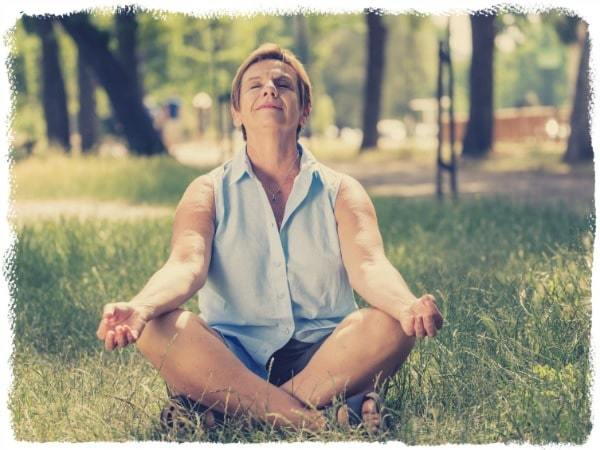For many, retirement presents a long-dreamed opportunity to pursue goals and experiences deferred by the demands of work and family for decades.
But for many of the same people, retirement also presents an unexpected challenge, as that sudden burst of freedom threatens to wash away habits, routines, and disciplines carefully cultivated to keep their careers on track.
However, the happiest retirees approach their later years with the same active, engaged, and courageous mindsets they maintained during their working lives.
So, the key to a happy retirement is managing that new freedom by adapting old approaches or acquiring entirely new ones.
The bottom line is that to enjoy the freedom of retirement, you’ll need to develop habits, routines, and mindsets that allow you to engage with life actively for the long haul.
This article will break down five habits to make your retirement more fulfilling.
1. Keep Yourself (or Get Yourself) in Better Shape.
Of course, nothing threatens an active engagement with life more than problems with your health. Ironically, though, when it comes to aging, the greatest threat to being able to stay active is . . . inactivity.
As noted by Aging.com, studies have shown that physical inactivity is the fourth leading cause of death worldwide.
But even short of death, a lack of exercise can make aging more challenging. Stamina and strength naturally decrease as people age, but most of that decrease comes from physical inactivity.
However, the benefits are enormous for those who stay active. As the experts at Aging.com point out, staying active can improve seniors’ emotional well-being, make them more resistant to disease and injury, and improve chronic conditions like high cholesterol, diabetes, and even Alzheimer’s.
Exercise can also make seniors stronger and more fit, making other forms of activity—from walking with friends to taking care of grandchildren—more attractive.
You can make it easier on yourself by making exercise one of the best healthy morning routine habits you should focus on during the first few hours of the day.
What’s more, these benefits can show up soon after starting an exercise program, so it’s not as if you need to have been a competitive athlete before you retired to get healthy in your later years.
You don’t need to exercise before you retire to benefit from your increased free time to get more active.
So, what should you do to become physically active in retirement? Improving your health through activity can be as simple as putting one foot before the other.
As we noted in our article on the benefits of walking daily, adding more steps to your routine can have several advantages.
For one thing, walking is a low-impact exercise that is perfect for someone who may just be getting out from behind their desk for the first time in years. It’s also a good exercise for someone with other health issues that render more strenuous activity impossible.
As we discussed in our article, starting a walking habit can be as easy as getting some walking shoes, investing in a pedometer, finding a convenient place to walk (e.g., a nearby park or mall), or just finding more reasons to get up and move around in general.
In other words, walking is a habit you can easily incorporate into your day, and it’s also an excellent place to start for a more active, healthier, and more enjoyable retirement.
2. Develop Routines that Allow You to Seize the Day.
Of course, walking won’t help you get in shape unless you make a habit of it. Making a habit of walking means coming to terms with one of the essential components of an enjoyable retirement: developing solid and reliable routines.
That may sound counterintuitive. After all, getting out of your workday routine may be one of the things you’ve been looking forward to the most. However, research shows that it’s hard to enjoy all that new leisure time unless you’re prepared to manage it effectively.
According to a study published in the journal Applied Research in Quality of Life, setting up systems to manage one’s leisure time effectively is more important than the raw amount of free time available regarding retirees’ perceptions of their quality of life.
“It is important to educate people on how to use their free time more effectively,” says Wei-Ching Wang of I-Shou University in Taiwan, the lead author of the study. “Quality of life is not affected as much by the amount of free time,” he adds, “but on how effectively the person manages this time on hand.”
What, though, would this sort of time management look like? Bob Lowry, a blogger and retiree who has experimented with various approaches to structuring his time, recently wrote about his experiments in his Satisfying Retirement blog.
For a short period after he left the workforce, Lowry, a former consultant in the music industry, tried an extremely rigorous time management system similar to the highly-planned calendar and daily schedule he’d used during his working life.
When he found this too rigid and too likely to create conflicts with his wife, he switched to avoiding time management altogether. But this approach left him unsatisfied. “Finally,” he writes, “I settled on a time management system that I continue to use: a blend of schedules, to-do lists, and free-flow.”
By adapting the approach he took in his working life to the new freedom he had in retirement, Lowry found the mix that worked just right for him. It kept him on top of essential tasks and gave him the ability to plan activities that gave him purpose while providing the freedom he needed.
“Fear of boredom or being unproductive is common,” Lowry writes. “It takes time to understand how to use your time in a way that is satisfying to you.”
If you’ve been out of the workforce for a while, you may have trouble getting back into setting up schedules and to-do lists.
However, managing your time in retirement can provide enormous benefits and make building up other beneficial habits, like a regular exercise routine easier.
In other words, you can think of all the elements of time management—from setting goals to setting schedules to managing to-do lists—as a keystone habit and prioritize them over other retirement activities.
You won’t be limiting your freedom in retirement: you’ll be unlocking the door to more possibilities than you may have imagined when you left the workforce.

3. Stay on Top of Your Finances.
Like time management, keeping on top of finances is another habit from working life that sometimes gets neglected in retirement. As Forbes.com senior contributor Laura Shin explains in an article on retirees’ common financial mistakes, “Having your days free to yourself can be intoxicating.”
With all that freedom to travel, socialize, and pursue other passions, it can be easy to overspend, which, Shin says, “can put you on a track to outliving your money.”
Moving from having an annual salary where you can always earn more to having a fixed income that depends on preserving a finite pool of investments can also present a challenge to retirees.
So as you develop routines for a happier retirement, consider adding regular financial check-ins to your to-do list.
When you check in, review your expenses, investments, and attitudes toward money. Remember that the same financial habits that keep younger people in the black can help you ensure that your money lasts as long as you do, enabling you to have a retirement free of worry about financial issues.
If you manage your money successfully, you may be able to go beyond financial freedom and acquire a growth mindset when it comes to your retirement savings.
The video below looks at the 11 habits of self-made millionaires and their daily decisions to create success in their lives.
This is important because a too-conservative approach to your retirement fund can hurt you almost as much as a strategy that’s not conservative enough.
On this subject, consider the advice of Henry Hebeler, a former president of Boeing who now offers seminars on financial planning to his fellow retirees.
Like Shin, Hebeler emphasizes the importance of following ordinary common sense when approaching your finances—living within your means, taking account of inflation, and understanding the ways that growing older can increase expenses.
However, Hebeler goes beyond this advice by recommending that retirees continue to look for opportunities for financial growth. Since retiring, Hebler says, he and his wife have “given away more than the savings we started with” but still have managed to double their nest egg.
One way he’s accomplished this is by having an investment approach that’s slightly more aggressive and responsive than most financial advisors suggest.
He and his wife put more money in riskier stocks and other equities—and then, Hebeler says, their rule has been “not to do any reallocation unless the allocation got more than 5% off target.”
In other words, while most advisors suggest gradually moving from stocks to safer investments like bonds or CDs, Hebler succeeded by monitoring his investments and only selling out when he felt the risk wasn’t paying off.
Hebler writes, “This really helped in the stock boom years, and it did not hurt me badly when prices fell.”
4. Develop Age Resistance.
It’s easy to talk about taking more risks with your finances, but, as with looking to become healthier, deciding to build wealth rather than deplete it requires rethinking what it means to be older. And as it turns out, rethinking aging is essential to a happy and healthy later life.
That’s because researchers have found that it is true that your attitude toward aging—in particular, whether or not you have a negative attitude toward aging—can have a profound effect.

While growing older does have some unavoidable downsides, it’s becoming clear that you can escape many of these consequences for a lot longer if you can free yourself from the assumption that these downsides are inevitable.
“We don’t need to age the way most people presume that we need to age,” says Dr. Ellen Langer, a psychology professor at Harvard, in a recent interview. “Much of the debilitation that we experience is a function of our mindsets, not a function of the natural aging process . . . if you expect to fall apart, then you fall apart.”
Langer has arrived at this conclusion after many years of studying how people’s attitudes can amplify or minimize the effects of growing older.
She’s famous for leading the Clockwise Study, which was conducted in 1979 and involved moving a group of elderly men into a home designed to evoke the late 1950s.
During the study, the men were encouraged to pretend they were living in the world two decades earlier. “For all intents and purposes,” Langer says, “it was that earlier time.”
The result? The men’s vision, hearing, memory, strength, and cognitive abilities improved. They even looked younger.
Langer isn’t the only researcher who has identified the ways that mindset can influence the aging process. Dr. Becca Levy, a researcher at the Yale School of Public Health, has found that if older persons can acquire positive beliefs about old age, they’re less likely to develop dementia.
“We found that positive age beliefs can reduce the risk of one of the most established genetic risk factors of dementia,” Levy says. “This makes a case for implementing a public health campaign against ageism, a source of negative age beliefs.”
Although short of a public health campaign, how can you overcome your preconceptions of what it’s like to get older? One strategy is to develop mindfulness. If you can stay mindful, you’ll be better able to identify negative thoughts about aging, making it easier to escape their influence.
If you’re new to the concept, mindfulness is simply the practice of focusing on the current moment, accepting it without fear or judgment, and separating yourself from the constant demands that your inner thoughts make on your attention.
Research shows that people can reap several significant benefits from being more mindful, including improved memory and concentration, reduced anxiety, improved sleep, and pain relief—all things that can enhance the quality of life in our later years.
However, mindfulness has also been shown to reduce implicit age bias. By focusing on the present moment and letting go of your judgements, you can also let go of the negative prejudices that may have convinced you that aging is a bad thing.
If you’re older, that should give you sufficient reason to begin practicing mindfulness. If you’re ready to begin, you should start with our article on how to incorporate mindfulness into your life.
5. Find a Purpose, No Matter How Large or Small.
As noted, mindfulness can have powerful benefits apart from helping you rethink aging.
If you’re looking for ways to keep sharp throughout the aging process, mindfulness is one of the most powerful tools you can access. But there’s one more habit that you’ll need to develop to unlock the full potential for happiness that retirement can offer.
Keeping fit, managing your time and money, and escaping the mindsets of aging don’t mean anything if you don’t take advantage of how these habits can broaden your horizons.
So, while all these other strategies are essential, they don’t necessarily end. Instead, they’re best seen as a means of enabling you to reliably set goals and give your life in retirement a purpose.

“People who sense that their life is meaningful are much less likely to suffer early mortality,” says Patricia Boyle, a neuropsychologist at the Rush University Alzheimer’s Disease Center in Chicago, in this NPR interview. “They’re less likely to suffer strokes. They’re also substantially less likely to develop Alzheimer’s disease.”
In short, according to Boyle, having a purpose makes it more likely that one will thrive as one ages.
That purpose doesn’t have to be particularly lofty: maintaining physical and mental vitality for the long haul. Your goal can be as simple as learning a new language, improving your golf score, or becoming a competent woodworker.
But it helps to have areas in which you want to improve and more than one area to work in. For some inspiration, here are some retirement bucket list ideas.
“The happy retiree group had hectic schedules,” financial planner and author of You Can Retire Sooner Than You Think Wes Moss recently told Money.com. “I call it hobbies on steroids.” So, what’s the best number of hobbies for optimal happiness?
According to the results of a survey Moss conducted among 1400 retirees across the country, three or four activities turned out to be the magic number. (Check out our list of hobbies for seniors to choose yours!)
Note, though, that Moss found that social activities like volunteering and golf led to more happiness than solitary pursuits like fishing or reading. “The happiest people don’t do things in isolation,” Moss says.
So, how do you find a purpose in retirement? The great thing is that whatever you choose doesn’t have to be all-consuming to bring you satisfaction, and it also doesn’t have to pay the rent.
You’ll still need to avoid all the temptations that can lead you to choose more passive pursuits: our article on kicking the TV habit is a great place to start.
Final Thoughts on How to Make Retirement More Fulfilling
So, there you have it: if you can keep yourself fit, manage your time, relegate your finances to a secondary concern, and maintain a positive attitude about aging, you can seize the day every day after you retire.
But never forget: the secret to a happy retirement goes beyond setting up a framework for being active.
Once you get active, you’ll have to have a purpose to stay active to reap the maximum rewards. If you can manage that, however, your habits and sense of purpose might guarantee you the happiest retirement possible.
And if you're looking for more resources to help make retirement more fulfilling, these articles might help:
- 70+ Best Finance Books Help You Manage Money
- What To Do With My Life? A Simple Guide to Find Out
- 19 Habits to Let Go of the Past & Live in the Present Moment
- 18 Retirement Planning Books to Help You Achieve Success When You Retire
Madison Cunningham is a content writer passionate about helping seniors and their loved ones make informed decisions about aging in place. She has written on topics ranging from finding the correct Medicare plan and selecting the best home healthcare provider to the benefits of volunteering as a senior. Madison is committed to providing unbiased, informative, and engaging content to help seniors live the most entire lives possible.


